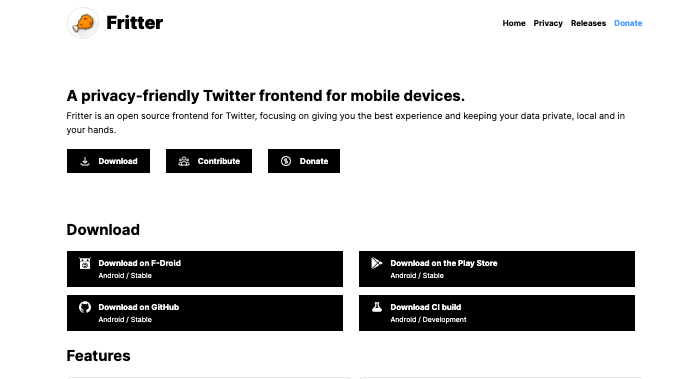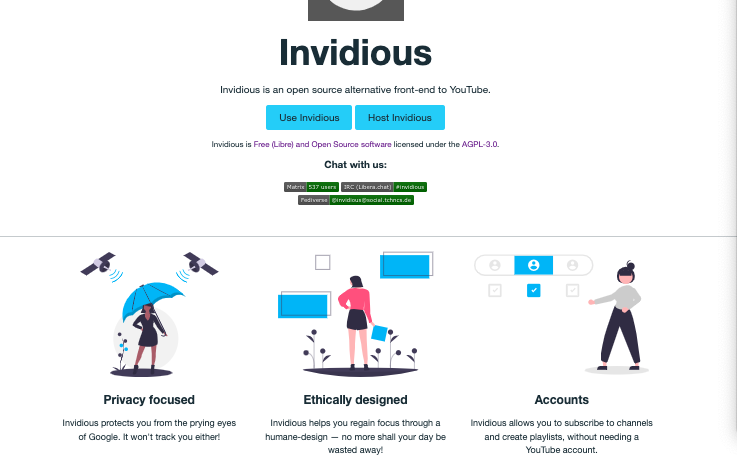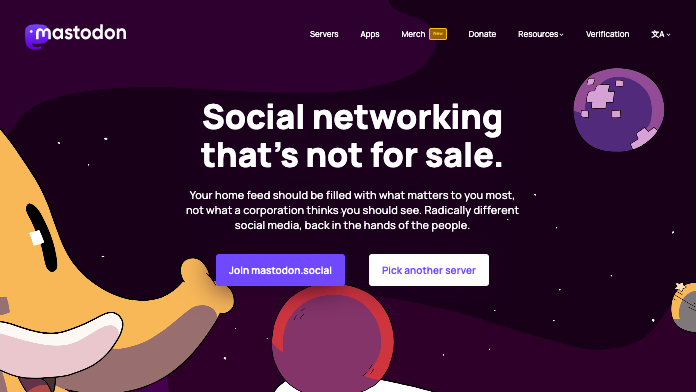If you’re like me, you’ve probably felt the sting of losing access to Nitter, the open-source Twitter alternative that many of us came to rely on.
I know I certainly have.
As we navigate this post-Nitter world, you might be wondering where to turn for a more customizable Twitter experience.
Don’t worry – I’ve done the legwork for you.
In this post, I’ll introduce you to 4 Nitter alternative clients that could fill the Nitter-shaped hole in your social media life.
Whether you’re looking for enhanced privacy, a cleaner interface, or just a change of pace, I’ve got you covered.
Let’s explore these alternatives together and find a new way to enjoy Twitter that suits your needs.
Fritter for Twitter is an open-source, privacy-friendly Twitter frontend designed for mobile devices. It focuses on providing a seamless user experience while prioritizing privacy.
Some key features of Fritter for Twitter include:
Privacy: Fritter does not track user actions within the app and does not send personal data to third parties. All data, including subscriptions, groups, tweets, and settings, is stored locally on the user’s device, and no Twitter account is required to use any feature
No Tracking: The platform does not track users, respecting their privacy and preventing data collection by third parties
Local Data Storage: All user data is stored locally on the device, ensuring privacy and security
Offline Bookmarks: Users can save tweets locally and access them offline
Trends and Subscriptions: Fritter allows users to view trending topics and follow and group accounts
Light and Dark Themes: The platform offers both light and dark themes to suit user preferences
Contribution and Support: Fritter is an open-source project that welcomes contributions from the community. It also relies on donations for support and continued development
Fritter for Twitter is a popular choice for individuals seeking a privacy-focused and ad-free Twitter experience on their mobile devices.
2. Invidious.io
Invidious is a free and open-source alternative front-end to YouTube, providing a lightweight and privacy-respecting alternative to the platform. It is available as a Docker container or from the GitHub master branch.
Some key features of Invidious include:
No ads: Invidious does not display ads, providing a clean and uninterrupted viewing experience for users
No tracking: The platform does not track users, respecting their privacy and preventing data collection by third parties
Lightweight and fast: Invidious is designed to be lightweight and load quickly, offering a smooth viewing experience even on slow internet connections
Customizable homepage: Users can choose their preferred homepage and themes
Subscriptions: Invidious allows users to subscribe to channels and receive notifications for all subscribed channels
Audio-only mode: The platform supports audio-only mode for mobile devices, allowing users to listen to audio while saving data usage
Support for Reddit comments: Invidious integrates with Reddit, enabling users to access comments on videos
Available in many languages: The platform is available in multiple languages, making it accessible to a global audience
Invidious is a popular choice for users who value privacy and want an ad-free viewing experience on YouTube.
3. Diaspora
Diaspora is a decentralized, open-source social networking service that addresses privacy concerns related to centralized networks.
It is a non-profit, user-owned, distributed social network that consists of a group of independently owned nodes (called pods) which interoperate to form the network. Users of the network can host a pod on their own server or create an account on any existing pod.
From that pod, they can interact with other users on all other pods. Diaspora users retain ownership of their data and do not assign ownership rights.
The software is specifically designed to allow users to download all their images and text that have been uploaded to the network. Diaspora is founded on three fundamental principles: decentralization, freedom, and privacy.
Instead of data being stored on large central servers controlled by large organizations, diaspora is distributed on “pods” around the globe. Users can choose the pod they want to register with and then connect with the diaspora community.
Diaspora also comes as Free Software, which gives users complete control over how they use it. In diaspora, users own their data and can choose who sees what, with Aspects.
Diaspora lets users share their friends, lifestyle, and content. It’s their business, not the network’s.
4. Mastodon
Mastodon is a decentralized, open-source social networking service that focuses on privacy and personal interaction. It is an alternative to centralized social media platforms like Twitter and Facebook.
Mastodon is based on a federated model, which means that instead of having a single central server, there are many independent servers (instances) that can communicate with each other. Users can create accounts on any instance and interact with users on other instances.
The platform has a minimalist and customizable interface, and users can choose to make their posts public or private. It also has features like content warnings, which allow users to hide sensitive content behind a warning message.
Mastodon is popular among users who value privacy and want to avoid the data collection and tracking that is common on centralized social media platforms.
I hope you’ve found at least one option that piques your interest. While none of these clients may perfectly replicate the Nitter experience we’ve come to miss, each offers its own unique features that might just enhance your social media journey in ways you hadn’t considered before.
I encourage you to give these alternatives a shot. Who knows? You might just discover a new favorite that makes you wonder how you ever lived without it.
So, fellow Twitter enthusiasts, let’s embrace change and continue to shape our social media experiences to fit our needs. After all, that’s what drew many of us to Nitter in the first place.










